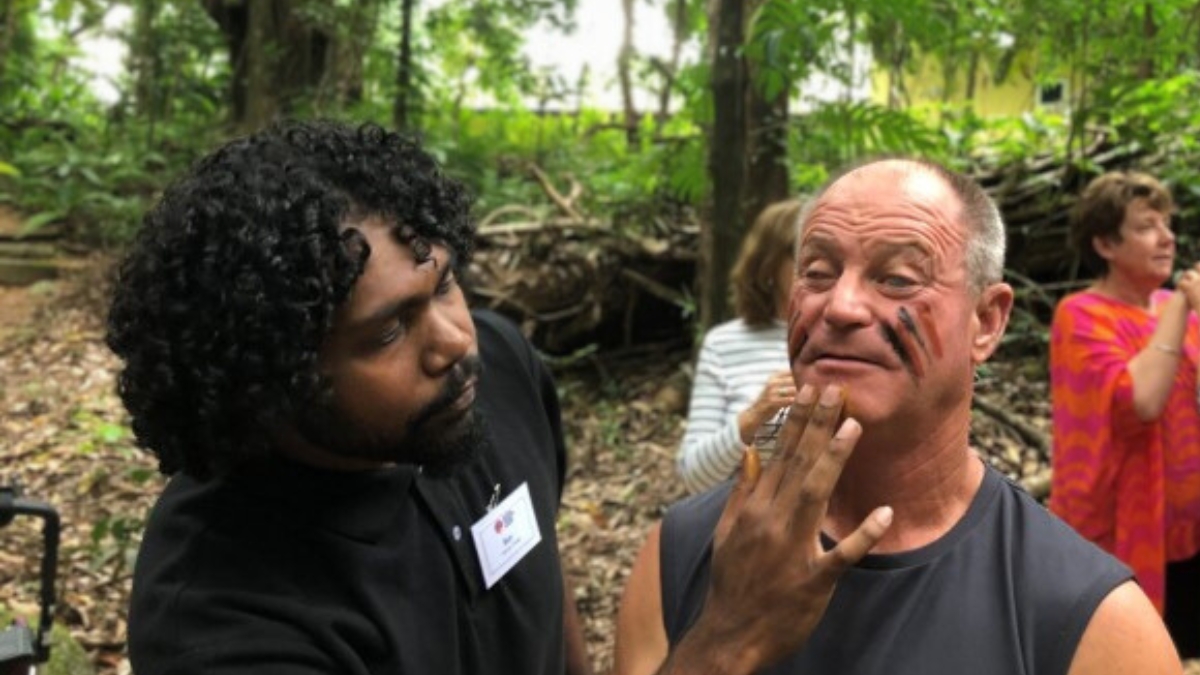
Australia is a favourite with local and international tourists alike, but the tourism industry at large isn’t built to be accessible for everyone.
After several years working as a tour guide for some of the world’s largest tourism brands, James ‘Buck’ McFarlane realised people with conditions ranging from blindness to mobility impairment weren’t being catered to – and he decided to something about it.
“I just found that a lot of the existing companies chuck support at the problem [of accessible tourism], but I want the destination to be engaging and experienced in the best possible way for the person that may have specific needs,” he said.
“The key thing is building solutions for a group with a similar need, and just highlighting the destination [in] the best way possible for that unique group of people.”
With more than 575,000 people who are blind or vision-impaired currently living in Australia, McFarlane decided to focus on providing tour options for the vision-impaired.
In 2018, he launched Cocky Guides, which has since become an award-winning tour operation that specialises in multi-sensory adventures for the blind and low-vision community.
The company is now up for another accolade, this time as a finalist for the Outstanding Community Organisation award at the 33rd annual Western Sydney Awards for Business Excellence.

There can be more to travelling than sightseeing. Photo: James McFarlane
Travellers who embark on Cocky Guides’ sensory tours are discouraged from bringing sighted friends or family in order to foster independence and a fully immersive experience.
Confidence with a white cane or a guide dog is preferred, and trip leaders put less of an emphasis on describing the destinations, and more on what can be felt, heard, tasted and smelled.
“We’re not about going to a lookout, and then saying, ‘OK, so there’s a big valley in front of us, and there’s green trees.’ That’s not fun or engaging,” McFarlane said.
“If we’re at Uluru, we’ll go up amongst the rock and touch the rock, and then tell the stories [of] the women that have been grinding plants in the kitchen cave … If we go [to Uluru] for sunset, it’ll be more about a camel ride … or it’ll be about the meal and the champagne we’re having at sunset.
“So it’s all about just eliminating the sightseeing and replacing it with the other multi-senses.”
‘Small army’ of people working for change
The Australian tourism industry is working hard to get international tourists, especially from China, back in full force.
But McFarlane said the industry is overlooking a huge market already in the country by not catering to different needs.
One in nine people aged up to 64 years in Australia have a disability, with the total number of Australians with disability at 4.4 million in 2018, Australian Bureau of Statistics data shows.
“The accessible tourism market is bigger than the Chinese inbound market,” McFarlane said.
“There’s a small army of people doing amazing things in accessible tourism, but there’s still a lot more work people can do to access that market and open up a new revenue stream as well.”

A white cane and a trusty tour guide can make a lot of things possible for people who are blind or visually-impaired. Photo: James McFarlane
Some tourist hotspots are already taking steps to address the gap, with major museums and galleries offering sensory hours for autistic visitors or other people with sensory sensitivity or disability.
McFarlane said there are also simple changes that can be made that could help a wide variety of different needs, such as a redesign of menus at cafes and restaurants.
Often, menus that have been designed to look pretty may turn out to be non-functional thanks to small font, and the colour of the font being too similar to the background.
Larger font and a change to dark-coloured font on a light and well-contrasting background would make a huge difference not only for people with low vision, but for older people in general who may find their eyesight deteriorating.
Spreading awareness
Since its inception, Cocky Guides has presented sensory experiences at more than 60 destinations for more than 1200 blind and low-vision travellers, about 85 per cent of whom are repeat customers.
As he continues to build his business, McFarlane hopes to one day provide tailored tours for people with various needs, such as the deaf and hearing-impaired, and wheelchair users.

Adventures should be accessible to all. Photo: James McFarlane
“We advocate by doing,” he said.
“We like to be walking through hotel lobbies. We want to be jumping on planes. We want to be going to the Great Barrier Reef and all this sort of stuff.
“Not only are we advocating for accessible inclusive tourism and showing these businesses how they can easily do it, we’re [also] … taking away that stigma that people might have for people that are blind or low vision by [them] seeing our travellers are just out there enjoying life like everyone else.”
